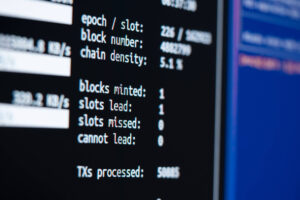DeFi is an acronym for "Decentralized Finance". It is a disruptive concept in the finance sector that replaces traditional intermediaries such as banks and other financial institutions with a series of blockchain-based decentralized networks and platforms.
DeFi - Dezentralized Finance is often referred to as a kind of "open-source financial system" where anyone can access financial services over the internet, regardless of their location or economic situation. Dezentralized Finance protocols are based on smart contracts that run on blockchains like Ethereum. A smart contract is a self-executing contract program that operates without human intervention. The rules of the contract are written in code and cannot be altered or manipulated.
Diverse DeFi use cases
The primary decentralized finance applications include lending and borrowing, stablecoins (cryptocurrencies whose value is pegged to a reserve of "stable" assets such as the US dollar), decentralized exchanges (DEXes), derivatives, and insurance. Anyone can use these services as long as they have access to an internet connection and a crypto wallet.
A major advantage of DeFi is financial inclusion. Billions of people worldwide do not have access to traditional banking services, and DeFi has the potential to bridge this gap. It also offers the opportunity to have full control and ownership over personal assets, rather than having them managed by third parties.
New technology means new risk
While DeFi offers many benefits, it also carries risks. These include technical errors in smart contracts that can lead to significant financial losses, and the volatility of the crypto markets, which can jeopardize users' capital.
In conclusion, DeFi - Dezentralized Finance is a revolutionary concept that has profoundly changed the way we deal with financial services. It provides a transparent, accessible, and efficient alternative to the traditional financial system but also brings a series of challenges and risks that must be carefully considered. In this field, it also requires the adoption of "self-sovereignty", where users take full responsibility for their financial decisions.









